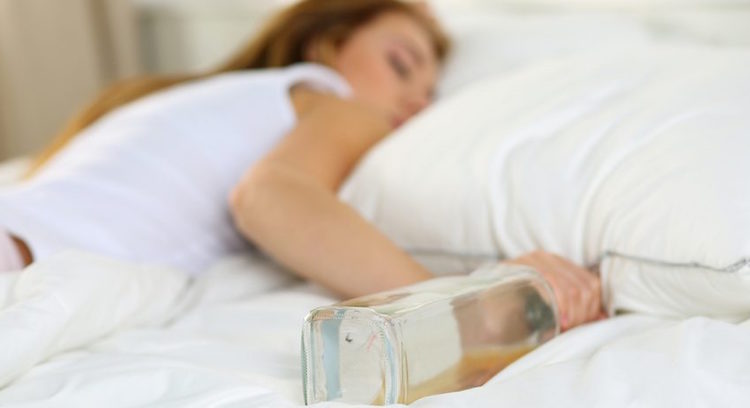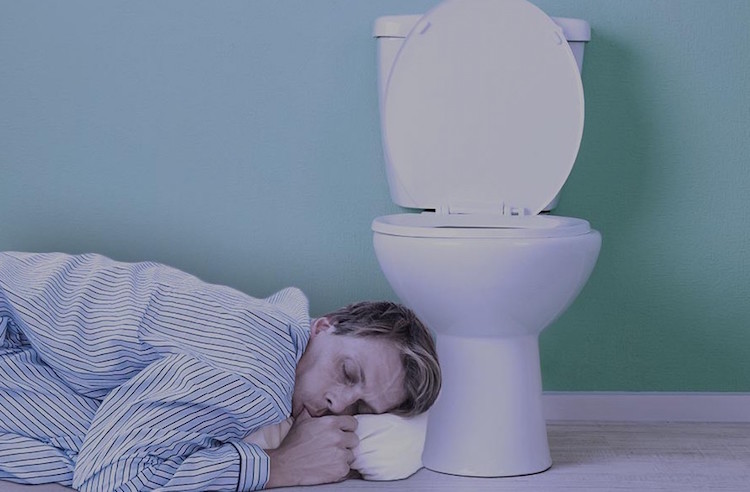If you’ve ever had a drink of alcohol, then you may have experienced the tired feeling that it can give you, which is why people begin to use it if they have problems falling asleep.
This becomes a regular habit as a way to induce sleep, but we’ll show you whether alcohol actually helps you sleep or has long term adverse effects.
You may have had the experience when you were a child of having a cup of hot chocolate before you go to bed. This is because warm drinks make you calm and relaxed which makes it easier to fall asleep. However, the feeling that alcohol gives you may be confused with calming but it’s just making you drowsy.
What Does Alcohol Affect During Sleep?
Alcohol affects many different body functions that you may not be aware of, so we’ll take you through each one so you can see the detrimental effect alcohol can have on your sleep.
How Does Alcohol Affect REM Sleep?
Alcohol is a depressant and is a significant contributor to lowering the quality of your sleep. This confusion comes because it will make you fall asleep quicker but once you’re sleeping it will begin to interfere with your REM sleep pattern.
REM sleep is the deep sleep that your body falls into which is very important for your body to function and repair itself throughout the night.
Alcohol consumption can interfere with your REM sleep cycle and reduce the amount that you get each night which will increase the likelihood of you waking up feeling tired and groggy.
Alcohol Dependency
As we’ve said previously, alcohol can make it quicker for you to fall asleep, but it will disrupt your sleep throughout the night.
The other problem with using alcohol to sleep is dependency. Initially, it may only take one drink to feel drowsy and fall to sleep, but gradually your body will begin to build a tolerance and one drink will turn to two then three and so on. This can lead to alcoholism and can have even more dangerous effects on your body.

How Does Alcohol Affect Circadian Rhythm?
Circadian rhythm is the natural body clock that the body has which makes us wake up in the morning and go to bed at night. Alcohol can negatively affect this circadian rhythm because it causes you to wake up in the middle of the night.
Melatonin and other hormones are released at night to make us feel tired. But once you've fallen asleep, the concentration of the hormone reduces which results in you waking up in the middle of the night.
This is the reason why you may have an alcoholic drink and feel tired at first, but then the feeling subsides after some time.
How Does Alcohol Affect Sleep Apnoea?
Sleep apnoea is a sleeping disorder that is becoming more and more common over time. This is caused by blockages of the airways which can reduce the airflow or even stop it altogether.
There is a connection between sleep apnoea and alcohol because it can cause the muscles in the throat to relax which then creates a narrowing effect which can lead to the airway being obstructed.
These airway blockages can also lead to snoring even for people who don’t usually snore. Alcohol is also the reason why the morning after you may have a blocked nose.
If you only get these symptoms when you drink alcohol, then you can remove the issue by not consuming alcohol before you go to sleep.
Alcohol and Your Bladder
Another problem with using alcohol to go to sleep is that through the night you will be woken up numerous times to use the toilet. Our bodies are complex, and usually, the bladder goes into hibernation mode for the night which limits the number of times that we’re disturbed through the night.
If you do need to drink, then it’s recommended that you do it at least 2-3 hours before you plan on going to sleep. Having to get up multiple times in the night will leave you feeling more tired in the morning due to the reduced REM sleep that you’ll be getting.

How Does Alcohol Affect Body Temperature?
Consuming alcohol can cause the temperature of your body to fluctuate dramatically which is usually in the form of a quick decrease followed by a sharp rise. The human body is complex, and thermoregulation is a crucial function to maintain consistent and optimal body temperature.
If our temperature drops then this can cause problems with the body’s ability to sleep, so although this drop makes it easier to fall asleep due to the alcohol, once the effects wear off people who consume large amounts of alcohol before bed will find themselves waking up earlier than initially intended.
This is because your body counteracts the decrease in temperature by increasing your body temperature as it tries to maintain homeostasis, which can also cause sweating throughout the night.
Brain Wave Activity
When we sleep our brains never switch off and continue to generate brain waves. Consuming alcohol before bed has been proven to cause the production of slow wave sleep patterns called Delta activity that is responsible for producing deep sleep.
However, alcohol also causes Alpha waves to generate which is the opposite of Delta waves which then interferes with your body’s deep sleep and repairing functions.
This is another example of alcohol making you fall to sleep quicker but harms your sleep.
How Does Alcohol Affect Sleep Insomnia?
Insomnia is a sleep disorder that interferes with a person’s sleeping pattern and stops them from getting a full restful nights sleep.
This can affect a persons sleep in many ways so it could mean that they aren’t getting into a deep sleep, waking up multiple times throughout the night or have enormous difficulties falling asleep, to begin with.
Either of these problems means that in the morning you can feel tired and not fully rested. This may not have a big difference as a one-off, but over time this can have had a significant long term effect on your overall day
Conclusion
There are many ways that alcohol can affect your sleep. Whilst it might feel ok to consume alcohol occasionally to help you sleep, the long term effects can be detrimental to your health. Next time you are tempted to drink yourself to sleep, stop and think about the how alcohol affects your sleep.

